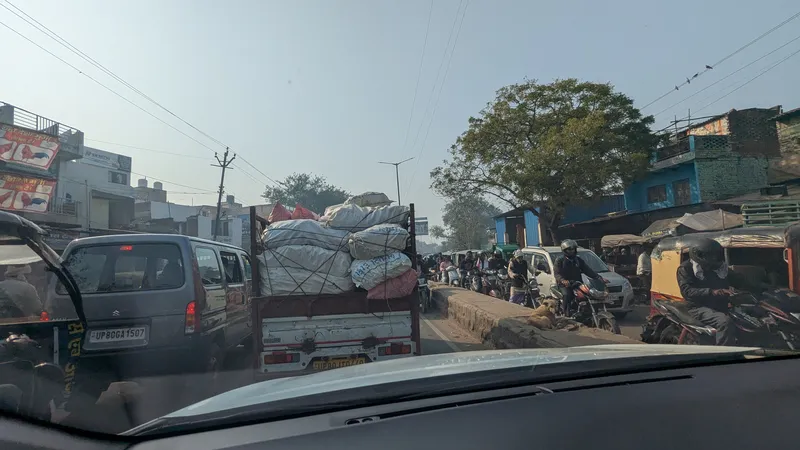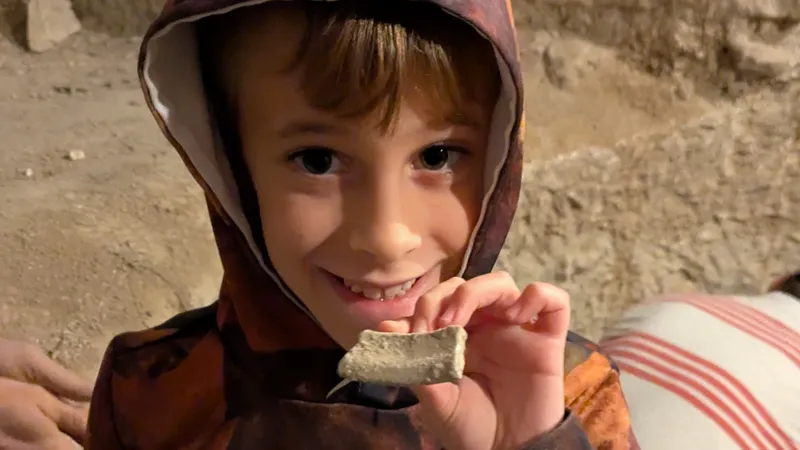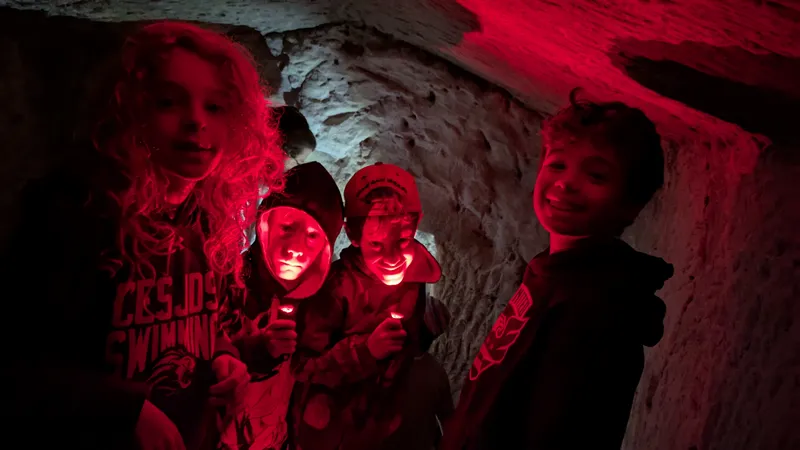These things occurred on Wednesday November 6, 2024 in Arusha, Tanzania
Near Ngorongoro Crater one can visit local tribes, such as the Hadzabe and Datoga tribes, to learn about how they live. The Hadzabe tribe is a nomadic tribe that lives along the Lake Eyasi Basin. It is the only tribe in Tanzania permitted to hunt wild animals. Except for using some more modern clothing such as shorts with buttons and zippers, or sandals when lounging around, most tribe members continue to live the way their ancestors lived 10,000 years ago. The Hadzabe live in small communities of twenty or thirty people. The men and women spend most of the day separate from one another. The men hunt, whittle weapons, and make hunting clothing out of animal hide; the women make food, watch the children, and mend clothing. They do not use any electricity or technology and only use money to buy maize flour when food is scarce due to drought or deforestation. Tribe members only speak their language, which is a click language, because they do not send their children to school and are strict about adhering to their way of life. They are also excellent at mimicking animal sounds. The chief is usually an elder, while the chief hunter is whomever is the best hunter of the group. This could be a twenty-year-old or a forty-year-old, but it is usually a younger member because of their agility, strength, and accuracy with the bow and arrow. Working with the government, the Hadzabe offer hunting demonstrations to tourists. This is how they make money to use during challenging times.
We started out early to reach one of the Hadzabe tribe’s campsites. Along the way, we picked up Joseph, a local tour guide who grew up in a farming tribe and learned how to speak both Datoga and Hadzabe as a young boy while gathering water at the local well. He also speaks English, Swahili, and French. When we arrived, the first thing I noticed were a few small huts set up on opposite sides of the campsite. The men and women were gathered separately outside their huts. One of the men, who we later learned was the chief hunter, was wearing a baboon hide around him. It obviously needed tailoring because he and a peer were busy cutting off strips that were bothering him. Joseph told us they had caught the baboon three days before and it was finally ready to wear.
The chief hunter greeted us with a wide grin and began welcoming us. It took a moment to realize he was only going to speak in click language. I was grateful for his dramatized body movements, or I never would have understood. We were living in a world of sound, limited to speaking a form of universal sign language. We were enraptured by the chief hunter’s charismatic storytelling, doing our best to speak his language when prompted. It wasn’t easy. Through his clicks and gestures, and with Joseph helping us when we couldn’t understand, we learned all about the different kinds of weapons they use for different kinds of animals. Smaller and stone or wooden arrowheads for birds and rodents, larger, stronger, and sometimes serrated metal arrowheads for animals like lions or baboons. They trade their bounty for arrowheads made by the Datoga tribe.
After our mini-lesson they handed each boy a small bow, kicked off their sandals, and told us to follow them. We were on a hunt. This was a problem that we only realized too late. Eitan loves animals and has a very hard time when anyone mentions anything about an animal dying. Chaim and I were so immersed in what was happening that we completely to check in with Eitan to know if he wanted to stay back with Hosea. He was also so excited to follow the chief hunter, who at that moment was probably the coolest person he had ever met, that he forgot all about what we were about to do and just ran after the group without thinking twice.
At some point we split into two groups. The boys, far more agile and quick than Chaim and I were in the forest, followed our tribe member closely. Chaim and I fell far behind while we picked our way through the branches and thorns trying not to get cut up. A few times we turned to each other and reminded ourselves to trust our children to know what they were doing enough to stay with the group. Also, I figured if any of them did get lost a tribe’s member would be able to track them in an instant. About fifteen minutes into our hunt we heard a bird call from the chief hunter. We picked our way over to him. He had caught a guineafowl. Pierced it through while it had been flying. It was now caught high up in a tree with an arrow sticking straight out of its wing.
$#!^. Only then did it dawn on me what was about to happen. I looked at Eitan who still seemed to be fine because he was distracted by a few of the hunters who were trying to shoot the bird out of the tree with their arrows. Then he was busy watching one of the younger tribe members, maybe eight years old, climb up what looked like a rather precarious branch of the very high tree to extract the guineafowl. None of the other tribe members seemed to think there was anything scary or problematic about what was happening. It was clear they trusted the boy and the boy trusted himself. A lesson in parenting I should probably heed more often than I do. When the boy returned to the ground with the bird, the chief hunter offered each of our boys the chance to hold the prize and take a picture with it. Amichai was the only one willing to do so. Every other child was tearing up. Eitan was hiding behind me, pressing his face into my back with tears streaming down his face. “How could you have do this to me?” he repeated over and over.
Photography session over, the chief hunter took the guineafowl and bit its neck. Blood dripped out. The guineafowl was dead. Thank goodness only Amichai saw what happened. In the middle of our trek back, the chief hunter stopped and everyone began gathering kindling to build a fire. They were going to cook the bird right there so that we could eat together. I quickly informed Joseph that we could not partake for religious reasons and the kindling was immediately dismantled. I worried they would take offense, but Joseph assured me they would happily share the catch with the other tribe members.
As we continued hiking back to the campsite, Eitan and I fell behind. Eitan was barely speaking to me and I was certain I was going to have the silent-treatment for the remainder of the day. However, his long and wild hair got caught in the branches of two overhanging trees. The poor kid couldn’t move. It took a few minutes to untangle him. We had fallen so far behind that the group grew worried enough to send a tribesman back to find us. When we emerged, we saw the chief hunter was setting up a bow and arrow target practice for us to try. Since women do not hunt, I wasn’t sure that I would be allowed. To my surprise, no one blinked when I asked to try. I got within an inch of the target and am pleased to say I impressed the chief hunter. Chaim got even closer. We learned the Hadzabe shoot at an angle, unlike the archers we see in the Olympics, to allow them to crouch down to the level of an animal they might be hunting.
As suddenly as our experience began, our time was up. Almost immediately, the once charismatic Hadzabe tribe members became more reserved. The show was over, leaving me to wonder if they truly enjoyed or secretly despised sharing their culture with tourists.
We left the Hadzabe village for the Datoga village to learn about their way of life as blacksmiths. Like the Hadzabe, they do not use technology. Two young children greeted us as we exited the jeep, eager to walk us into their village. The Datoga tribe still practices polygamy. We had the honor of meeting several wives of the chief who all live together in the women’s hut. The hut we visited included one small room for living (or in our case showcasing how they make maize flour) and a “kitchen” with a small fire in the corner for cooking. Very little light shines into the hut, It was dark, dank, and airless with only a small window in the “kitchen” to let out the smoke from the fire. With Amichai’s recent illness still fresh in my mind, I couldn’t help wonder about the kinds of diseases that could easily spread in such a space. I marveled at the thought that this has been their way of life for thousands of years.
The women invited me to ground the maize into flour because that is the woman’s responsibility. They sang while I worked. Then they invited us to the “kitchen” where a wife was cooking something over the fire. Thanks to my cooking lesson with Glady earlier in the week, I instantly recognized it as ugali. All of the women cheered when I pointed at the pot and said “ugali.” They seemed genuinely surprised that I knew what she was making.
After our tour of the women’s hut, we were brought to the blacksmithing area. There, men and boys sat watching while one man worked the fire, melted down metals to remold in premade casts. Unlike the women, the men did not sing while they worked. While watching the blacksmith work, a few women showed us arrowheads, bracelets with colorful insets, and other lovely items. Jacob explained that the Datoga tribe uses the trash, especially plastic, found all over the roads to incorporate color into their jewelry. An excellent example of upcycling while maintaining tradition.
After we said goodbye, Jacob was eager to show us the rice fields where he grew up. He is part of the Iraqw tribe, who focus on farming and growing crops such as maize, potatoes, rice, and wheat. Instead of meeting other tribe members, Jacob walked us through the rice fields, explaining the irrigation system they use to flood the fields. For the boys, it felt like a simple hike. For me, it was a wonderful insight into the ways three separate tribes learned to coexist and depend on each other through trade and expertise.
Our experiences were eye-opening. Juxtapositions flooded my mind. Two in particular were: technology-less in the center of a technology-full society, and the beautiful surroundings filled with trash.
We were back at our inn by 12:00PM where we dined and discussed American politics, and equality and feminism in Tanzania. The boys spent the afternoon swimming and playing. That night we realized we’d run out of socks and underwear. With no time to send our laundry out, we washed our clothes in the sink and then spent an hour blow drying them so that they would be dry enough to pack.



